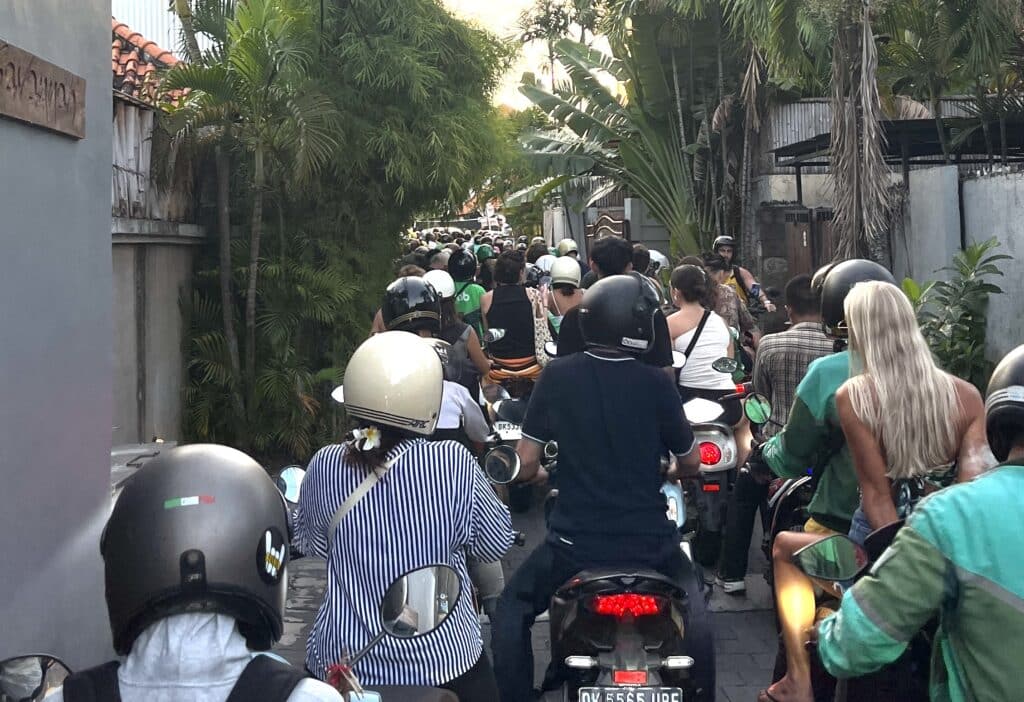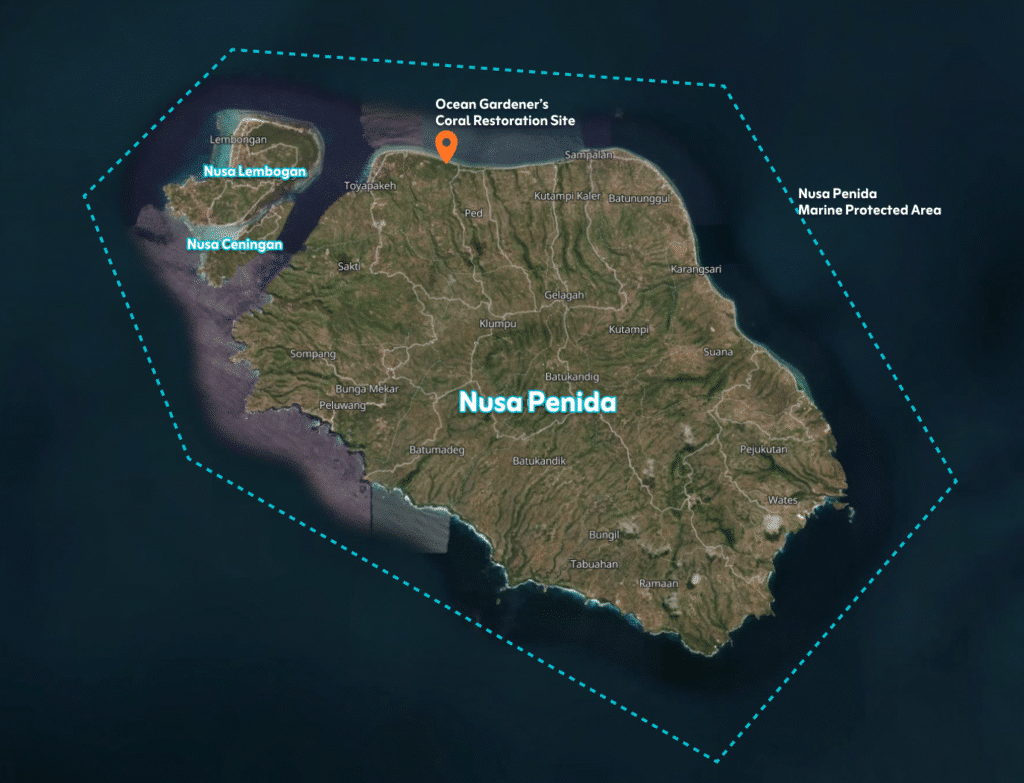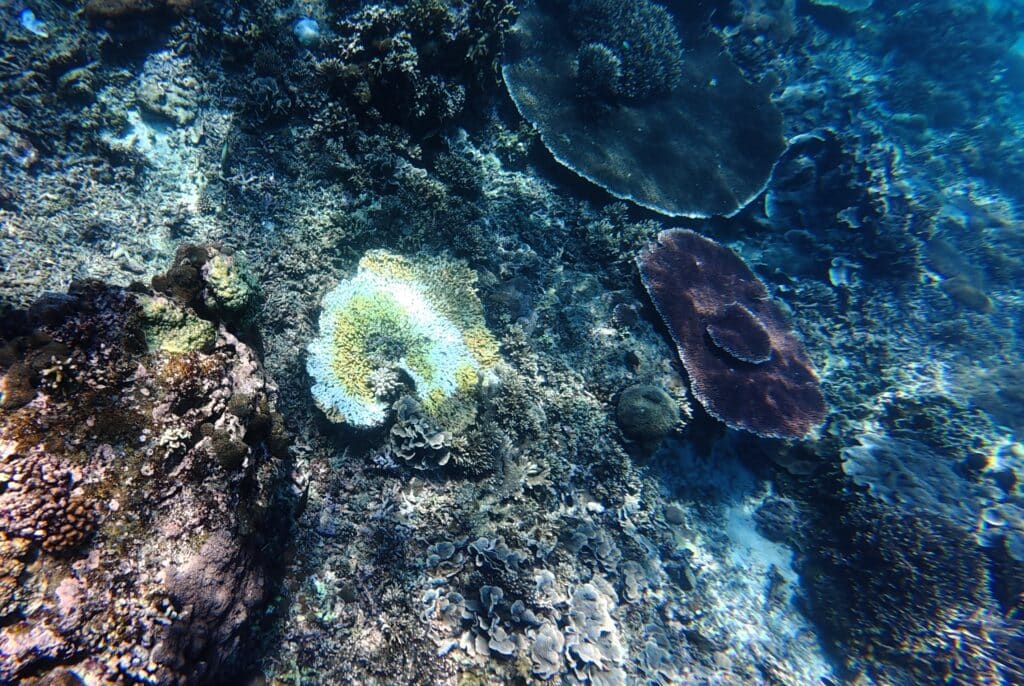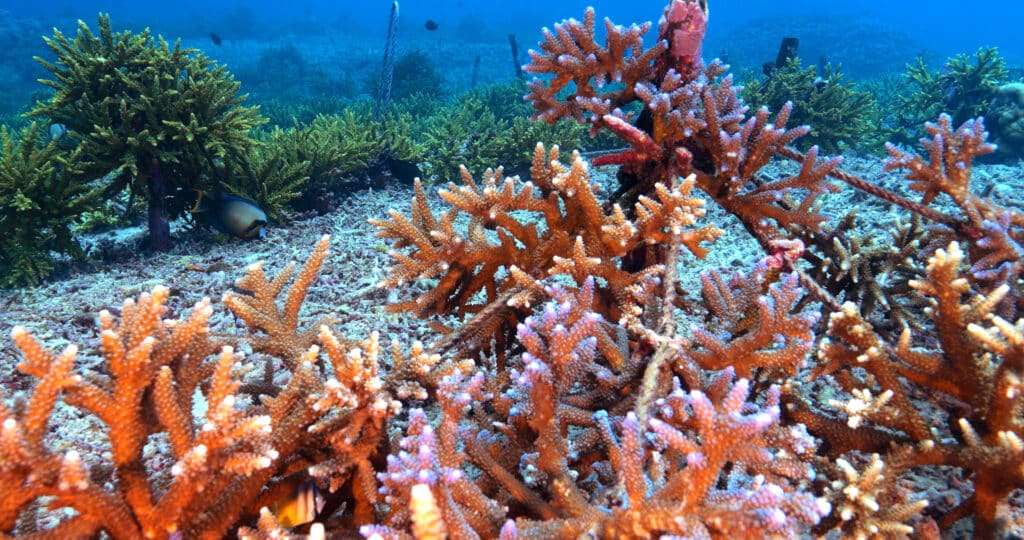Bali, the “Island of the Gods,” faces a growing challenge: overtourism. In 2023, the island welcomed 7.2 million international tourists, leading Fodor’s Travel to place Bali at the top of its “No List” for 2025. This has been accompanied by an uncontrolled building boom, where infrastructure is trying to catch up to tourism development. This has resulted in traffic gridlock, environmental degradation and local discontent.

Just off Bali’s coast lies Nusa Penida, an island best known for its breathtaking views of Kelingking Beach, which has populated many social media influencers’ profiles. With easy access from Bali’s mainland via a quick ferry ride from Sanur.
Nusa Penida is a prime location for nature-based tourism, offering unique experiences that deeply connect visitors with its natural environment. These include snorkeling and diving, where visitors can explore coral reefs and encounter diverse marine life, such as manta rays at Manta Point and the famous Mola or Sunfish in Crystal Bay.
Change in the right direction – the Nusa Penida marine protected area
A significant portion of its surrounding waters has been designated as a Marine Protected Area (MPA) since 2010 by the Klungkung District Government, a crucial step in safeguarding its rich biodiversity, including vibrant coral reefs and majestic manta rays.
This MPA, located off Bali’s southeast coast, covers 20,057 hectares and surrounds Nusa Penida, Nusa Lembongan, and Nusa Ceningan. It is home to 296 coral species and 576 reef fish species, making it one of the world’s best places to swim with manta rays, which frequent the reefs in large numbers.

The Nusa Penida MPA zoning plan divides 20,070 hectares of marine area into four main zones and seven sub-zones, including a 1,700-hectare no-take zone. The plan incorporates local knowledge and traditions, including a sacred zone. Compliance is enforced through routine patrols by the Nusa Penida MPA Management Unit, the Indonesian Navy, the Marine Police, the local community, and NGOs.
This designation aims to protect ecosystems from overfishing and destructive practices, allowing marine populations to thrive. While removing human pressures from uncontrolled fishing or poaching is a step in the right direction, it’s crucial to acknowledge that land-based activities inevitably impact the reefs.
Next steps – Untreated Wastewater Is Starting to Threaten Marine Ecosystems
Since 2018, Ocean Gardener has been working with the local fishermen community Nuansa Pulau in restoring the rubble field in Ped, Nusa Penida. Although significant progress has been made, recent signs of distress in the corals suggest the initial impacts of unchecked urban development and untreated wastewater, mirroring issues seen in other parts of Bali and Indonesia that have devastated reefs.

Nusa Penida’s increasing popularity, driven by its proximity to Bali and natural beauty, has fueled a rapid expansion of tourism infrastructure and visitor numbers. If this growth continues without adequate waste management, regulated development, and visitor education, land-based pressures will inevitably spill over, jeopardizing the very marine ecosystems the MPA is designed to protect. The tragic fate of the reefs is a real possibility unless the MPA designation is integrated with comprehensive sustainable development strategies for the entire island. Without proper planning, increased construction runoff, inadequate sewage systems, and uncontrolled tourist activities will degrade water quality, directly harming the fragile coral reefs and marine life that the MPA aims to safeguard. Therefore, the success of Nusa Penida’s MPA depends not only on marine conservation efforts but also on a firm commitment to sustainable land use and tourism practices that protect the island’s natural resources, both above and below the surface.
We are incredibly proud of the significant strides we’ve made in Ped, Nusa Penida. Our dedicated efforts have resulted in the successful restoration of over a kilometer of vital coral reef in the island’s northern waters. This achievement marks a crucial step in the regeneration of Nusa Penida’s precious marine environment.
As this vital marine regeneration takes root, we are hopeful that the government will continue to implement positive, impactful changes to safeguard the island’s incredible marine life. However, true, lasting protection of Nusa Penida’s natural treasures and the longevity of its nature-based tourism hinges on sustainable management. This requires clear guidelines for both visitors and developers, coupled with robust infrastructure for effective waste management and comprehensive environmental protection. Without a well-defined and comprehensive sustainable development plan, the very natural attractions that draw people to Nusa Penida will ultimately be at risk.

We invite you to be a part of this vital work. Please consider visiting our Nusa Penida coral restoration site and help us continue our mission to nurture and protect these irreplaceable underwater ecosystems.